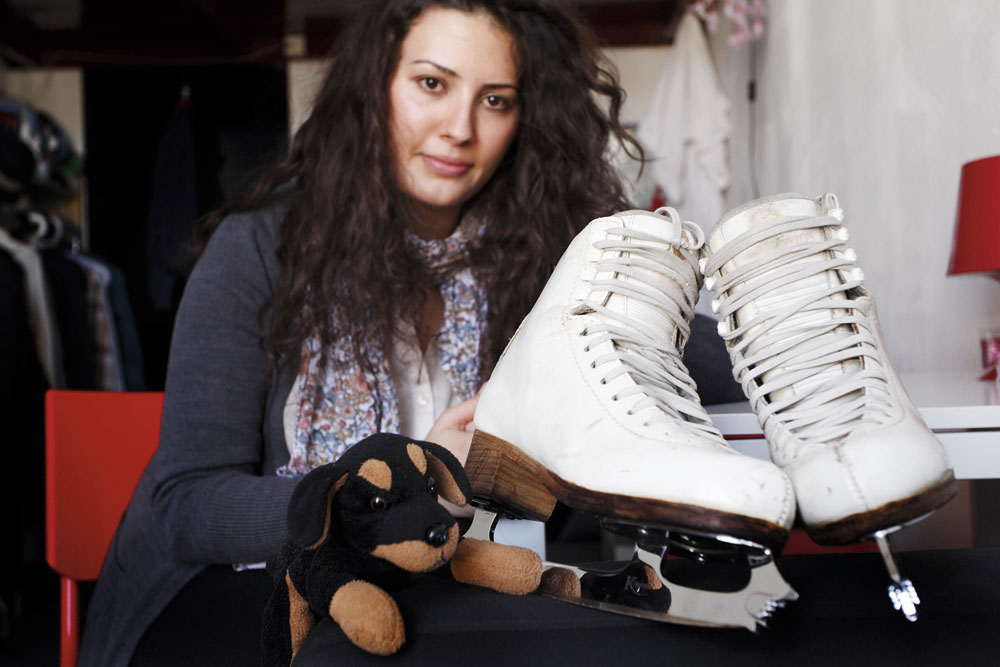Toen Sine Celik (25) ruim vijf jaar geleden vanuit Ankara naar Delft kwam, moesten en zouden haar kunstschaatsen mee in haar bagage. Niet zo gek als je weet dat Celik van haar twaalfde tot haar achttiende deel uitmaakte van het Turkse nationale team kunstrijden.
Het knuffelhondje was haar eerste trofee die haar vanuit het publiek werd toegeworpen toen ze een jaar of zeven was. Hier in Nederland schaatst ze ook graag en de mensen zijn vaak verbaasd over haar kunsten. Verder staat Celik op het ijs als scheidsrechter bij ijshockeywedstrijden voor de jeugd bij haar club Dordrecht Lions. Ze doet daar ook een vervolgcursus waarna ze ook bij de senioren mag fluiten.
“I found the photo on iStockphoto.com,” says Dr Michel Meulpolder. He was looking for scales, as the topic of his PhD research at faculty of Electrical Engineering, Mathematics and Computer Science was on balancing supply and demand in peer-to-peer networks in which people exchange content, like music and films, over the Internet. A problem facing such networks, like BitTorrent and the TU’s home-grown Tribler, is parasitism by free riders – people who only download but do not share. Meulpolder choose the photo because of its Zen-like atmosphere and the visual paradox of seeing something that cannot be true. His own attempt at restoring the balance in P2P networks is called BarterCast. The programme tries to establish someone’s reputation based on what it can find out about the history of uploads and downloads to and from other computers in the network. “It all happens decentralised,” Meulpolder explains. “It’s like computers gossiping among each other. But that’s how human reputations are made or broken as well.” Bad sharing gets punished with low bandwith, while collaboration is rewarded.
Michel Meulpolder, ‘Managing supply and demand of bandwith in Peer-to-peer Communities’, 1 March 2011



Comments are closed.